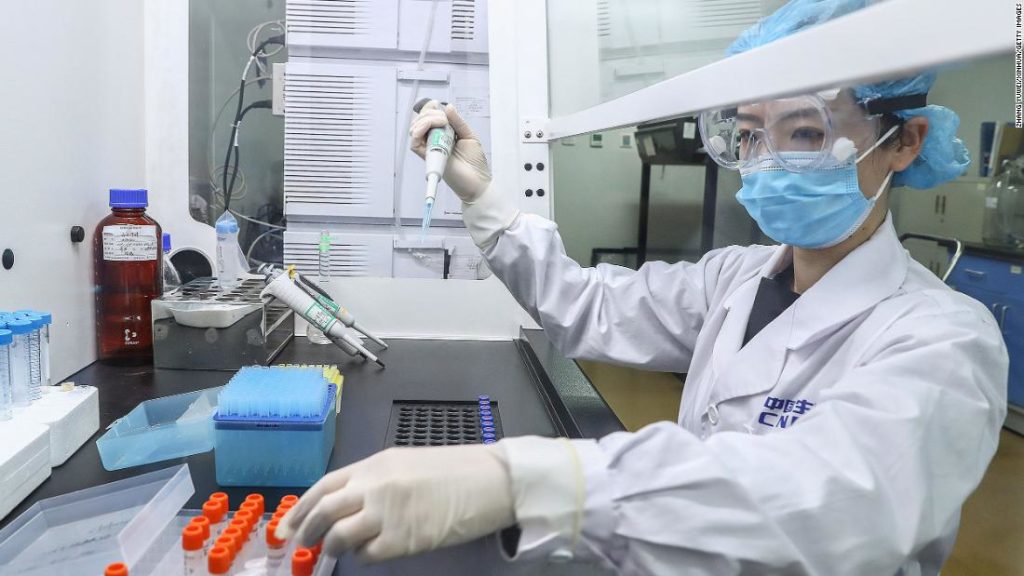Interim analysis of Phase 3 clinical trials show the vaccine is safe and people who received two doses produced high-level antibodies, according to a statement published Wednesday by Beijing Biological Products Institute Co., a Sinopharm subsidiary.
The company said it was seeking formal approval from China’s regulators to distribute the vaccine to the public.
By November, nearly one million people had received a Sinopharm vaccine, according to the company’s chairman, though he didn’t specify which of the company’s two vaccines they had received.
Though few details were provided, the statement released Wednesday said the vaccine met the standards of the World Health Organization and China’s own regulator, the National Medical Products Administration.
A step closer to massive rollout
Sinopharm’s results were announced weeks after its global competitors. And with a lack of details, it remains unclear whether the information provided will be enough to dispel skepticism over the quality of Chinese vaccines.
Nevertheless, the announcement could still pave the way for the vaccine’s large-scale rollout both within China and globally.
China is ready to send hundreds of millions of doses to countries that have conducted last-stage trials for its leading vaccine candidates. Chinese leaders have also promised a growing list of developing countries priority access.
Beijing is using the global campaign as a soft power tool, analysts say, to try to repair any damage to its image from its early mishandling of the coronavirus pandemic.
China has five coronavirus candidates from four companies which have reached Phase 3 clinical trials, the last and most important step of testing before regulatory approval is sought. Having largely eliminated the spread of coronavirus inside its borders, Chinese drugmakers had to look abroad for places to test the efficacy of their vaccines. Together, they have rolled out Phase 3 trials in at least 16 countries.
Sinopharm’s two vaccine candidates are undergoing Phase 3 trials in 10 countries, mostly in the Middle East and South America.
Compared with Pfizer and Moderna, Sinopharm’s vaccines do not require freezing temperatures for storage, making transport and distribution much easier — especially in developing countries that lack cold storage capacities.
CNN’s Beijing bureau contributed to reporting.
You may also like
-
Afghanistan: Civilian casualties hit record high amid US withdrawal, UN says
-
How Taiwan is trying to defend against a cyber ‘World War III’
-
Pandemic travel news this week: Quarantine escapes and airplane disguises
-
Why would anyone trust Brexit Britain again?
-
Black fungus: A second crisis is killing survivors of India’s worst Covid wave

